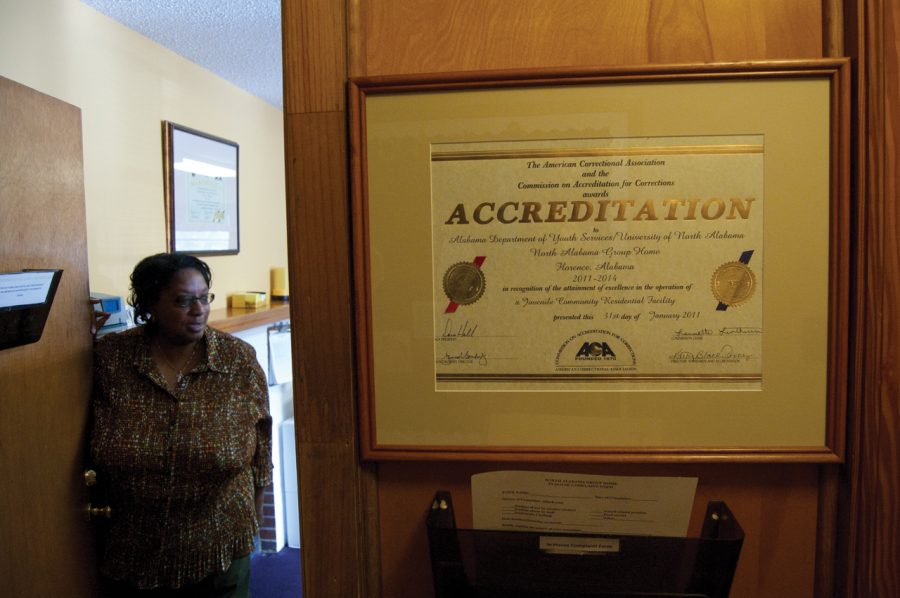Campus mourns loss of group home due to state cuts
February 23, 2012
The UNA community is hurting after state funding cuts forced officials at the Alabama Department of Youth Services to close an 18-year-old group home for adjudicated girls near campus, said Jackie Winston, program and projects coordinator.
The state of Alabama informed administrators Feb. 2 of its intent to shut down the group home, which was designed in 1993 to act as a safe haven for troubled girls ages 12 to 18. UNA students from various academic disciplines have also used the group home as a resource for gaining hands-on experience in their fields.
The loss of the North Alabama Group Home is devastating to the local area, and will put five full-time and 12 part-time employees out of work by April 1, according to Winston, a UNA assistant professor of social work.
“I was shocked,” she said. “I have great concern for the staff and for the young ladies that we serve. We’ve provided a wonderful program, and it is sad that we are no longer able to provide those therapeutic support services for girls.”
Winston said the group home staff members experienced a combination of sadness, grief and surprise when they learned the program they had devoted their professional lives to would close so suddenly.
“(The staff) is extremely dedicated and are a loyal backbone of the program,” she said. “They have such compassion for the girls we serve. It’s important for me that, as we close on April 1, the women who work here be honored and appreciated accurately for the work they’ve done.”
The group home, which is located on North Cypress Street near campus, is a two-story, 10-bed building with surrounding property that is owned by the university. The program is a contract facility and offers a homelike atmosphere for females who are in legal custody of DYS.
The group home operated since fall of 1993 using a renewable DYS grant in excess of $250,000 after Winston and another member created a program to help adjudicated girls and to provide service learning opportunities for UNA students, interns, local citizens and civic groups.
Since the group home’s opening, the program has allowed UNA students to use the facility to meet academic requirements, learn career skills and how to improve the quality of life for adjudicated females, Winston said.
“The group home afforded a setting close to campus whereby our students could have a field-based, hands-on learning experience to augment their classroom work,” said Dr. John Thornell, provost and vice president for academic affairs. “The closing of the group home signals the continuing economic difficulties the state faces, a problem that will hopefully be addressed by the state legislature.”
Girls who were admitted to the regular program placement would live in the group home for approximately four to six months, while girls in the pre-release program placement would take part for six to 12 weeks. Each girl was required to complete an individual service plan in order to be released.
The group home provided additional services to young girls, including counseling sessions, a behavior system, educational opportunities, health services, recreational activities, practical instruction on basic life skills and more.
“The removal of funding and closing of the group home by the state of Alabama is a sad occasion for UNA,” Thornell said. “An important part of the UNA mission is service to the community and region, and the group has played an important role in support of that effort. Many young women in trouble and in desperate situations were provided a temporary place of refuge where they could be nurtured.”
Freda T. Reeder, assistant director of the North Alabama Group Home, said numerous community resources and the Florence City School system have provided countless services to residents and worked to help the program succeed.
“I am very saddened by the state department’s decision to close this particular group home,” she said. “This comes as a shock to me and the community as well. Our program has been successful over the past 18 years. I have been employed here for the past 12 years and have witnessed the transformations of hundreds of young ladies who have participated in this program.”












